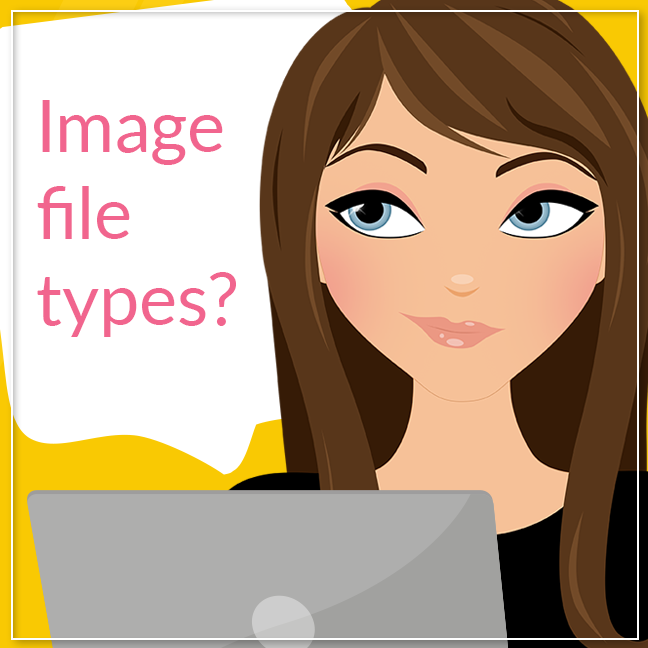HOW TO
Understand File Formats

Before you purchase digital files online it is handy to know and understand the file types that are being offered with your purchase.
It is wiser still to understand which file type you need/want in advance of making your purchase based how you intend to use that file. This way you know you are purchasing the right file for your needs without any surprises.
If you've gone ahead and purchased though and are now wondering "what do I do next?" - the following list of file types will help explain what you have in front of you, which one to choose in which instance and how to best make use of them based on their purpose and compatibility.
Keep in mind however, that this is not a tutorial on how to actually use each file you may have - it is just an explanation of what each file IS, along with where or how it can be used from a software perspective.
When talking about each of these I will be referring to their use on a laptop or desktop computer and applicable software - for mobile app use the usage rules still apply but the apps may vary in compatibility.
You may also find some helpful tips in How to Open Any File and in Choose the Right Software.
JPEG or JPG
This is the default file format for photographs and is a static file type (meaning it doesn't do anything except look pretty). These files can be opened in almost any software program as they are a universally accepted file format, perfect for printing.
PNG
Used specifically for things like clip art, this file type offers
transparency enabling images to be easily layered into design work. Can also be opened in almost any software program, perfect for design work across a multitude of project types.
PDF
A file format that is used to present and share documents
containing text or graphics for the purpose of viewing/printing. PDF files can be either fixed or editable
depending on how they are designed and set up - sellers will define a PDF as editable if that is the case, otherwise do not assume it is.
SVG
These vector files are scalable, meaning you
can resize smaller or larger without any loss of quality. This is a popular craft file compatible with all cutting machine brands (like Cricut or Silhouette). It can only be opened in programs that support a vector file format so they will not open in just any program.
DXF
This is a type of AutoCAD file and typically opens as a
simple outline of a graphic or text design. It is compatible with most cutting machine programs and particularly used with laser cutting. It is best used in AutoCAD software.
AI
Specifically for Adobe Illustrator software, these files can only be opened in software programs compatible with this file extension (Adobe, Affinity). These files will be fully editable design files and are useful to those with experience with the Illustrator program.
PSD
Specifically for Adobe Photoshop software, these files can only be opened in software programs compatible with this file extension (Photoshop, PS Elements, Photopea). Depending on the creator's intent, these files may or may not be fully editable but are usually offered with some design intent since these programs have a wide range of design tools.
EPS
This is a more universal version of the Adobe Illustrator file format. When opened by any vector based drawing program you will be able to fully edit the design (Affinity, Inkscape). When opened in any other type of program it will become a flattened raster file, much like a PNG or JPG file.
CDR
Specifically for CorelDraw software, these files can only be opened in programs compatible with this file extension (Corel, Adobe Illustrator, Inkscape). Not to be confused with video or audio files with the same .cdr extension.
This is not a comprehensive list of file types, but rather, a list of the most common file types you'll encounter when purchasing digital design files. Should you come across a file type that you do not recognize, a quick google search will be able to tell you what it is and how/where it is useful.